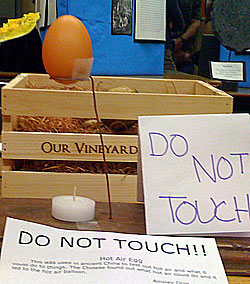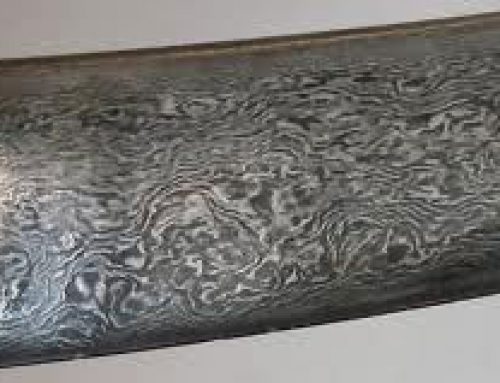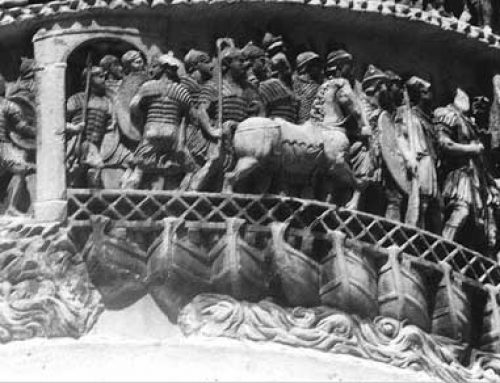
Kongming’s Light, made by kids at Laurelhurst School, Portland Oregon
Kites came first
People in China started to fly kites made of silk and bamboo by about 800 BC. Maybe flying kites helped to give inventors the idea to try to get other things to fly too.
History of kites
What is silk?
Iron Age timeline
All our China articles
Hot air rises
According to the Chinese book Ten Thousand Infallible Arts of the Prince of Huai-Nan, written around 150 BC, someone did an experiment to get an eggshell to rise into the air. They blew the yolk and white out of the shell through a small hole (as people do to make Easter eggs). Then they stuck some burning weeds through the hole into the shell. The air inside the shell got hotter, because hot air rises. The eggshell got so light that the wind was able to lift the eggshell and it flew through the air. This couldn’t really work – it’s not enough hot air to lift an eggshell. But the story shows that by 150 BC people in China knew that hot air rises and were interested in using this fact to make things fly.
History of eggs
Why hot air rises
More about Easter Eggs
Empires timeline

Hot air balloon in modern times
Kongming’s Light
Almost four hundred years later, around 220 AD, one of the Shu Han king’s advisors, Zhuge Liang or Zhuge Kongming, used the same idea to invent an early hot air balloon. During one of the many wars of the Three Kingdoms period, Zhuge designed a light to confuse the enemy. He put an oil lamp inside a large paper bag. The hot air trapped inside the paper bag lifted the bag so it floated in the air. The light frightened the enemy and helped the Shu Han to win the battle. People started to call this kind of hot air balloon “Kongming’s Light”.
A hot air balloon with Kleenex
Who invented paper?
Making your own oil lamp
Three Kingdoms China
Mongols and balloons
By about 1200 AD, when the Mongol Empire ruled China, these hot air balloons were popular at fairs and festivals, where crowds of people would gather to watch big paper balloons float up into the air. Mongol armies, learning about these balloons from Chinese people, started to use hot air balloons shaped like dragons either as battle flags or maybe as signals.





i think its not cool